- Introduction
- ES Morse
- Morse in New England
- Morse as an illustrator
- Morse in Japan
- Morse's pottery collection
- Charles Otis Whitman
- Shosaburo Watase
- Umeko Tsuda and Sutematsu Yamakawa
- Katsuma Dan
- Emperor Showa (Hirohito)
- Shinya Inoue
- Osamu Shimomura
- Susumu Honjo
- --------
- E.S. Morse Institute
- Institutional Cooperation
- Fukushima
- About
E.S. Morse in Japan
Morse arrived in Japan in 1877 with high hopes of collecting live Brachiopods, which he proceeded to do. His keen observation and recording immediately extended to all that he saw: houses, clothing, fences, rickshaws, all details of this strange new country he was in. He constantly sketched all that he saw that interested him, which included everything!
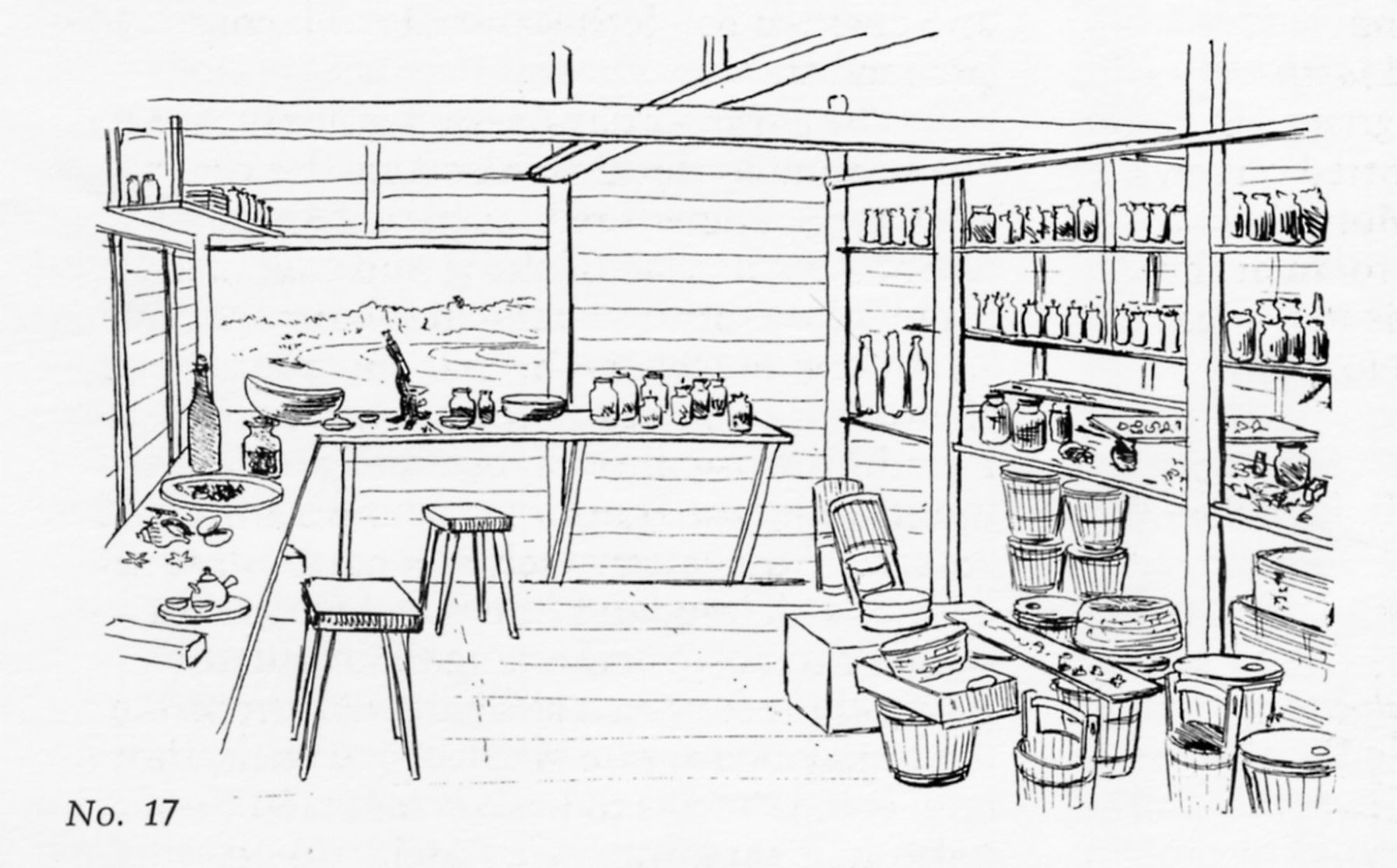
The first marine station in Japan, at Enoshima, set up by Morse in 1877
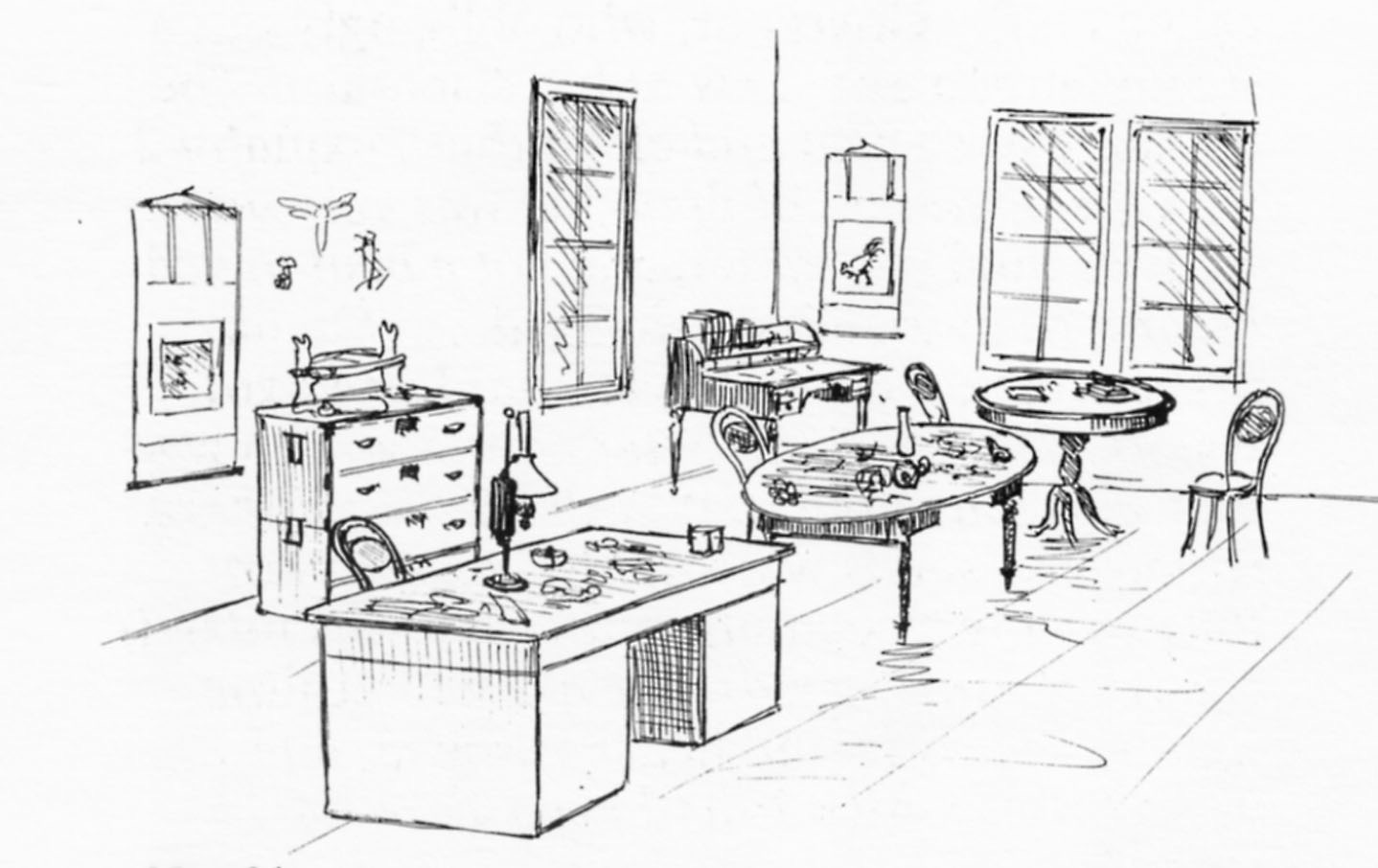
Morse’s study in his home in Tokyo in 1878
While he was there, consulting with other young naturalists who had attended universities in the U.S., he was invited to lecture as a professor at the Imperial University of Tokyo (now Tokyo University). Postponing his commitments in the U.S., he stayed on for six months. While he was teaching, he of course found that he needed fresh specimens, and proceeded to the coast to collect. At Enoshima, he established a collecting facility, the first Marine Station in Japan.
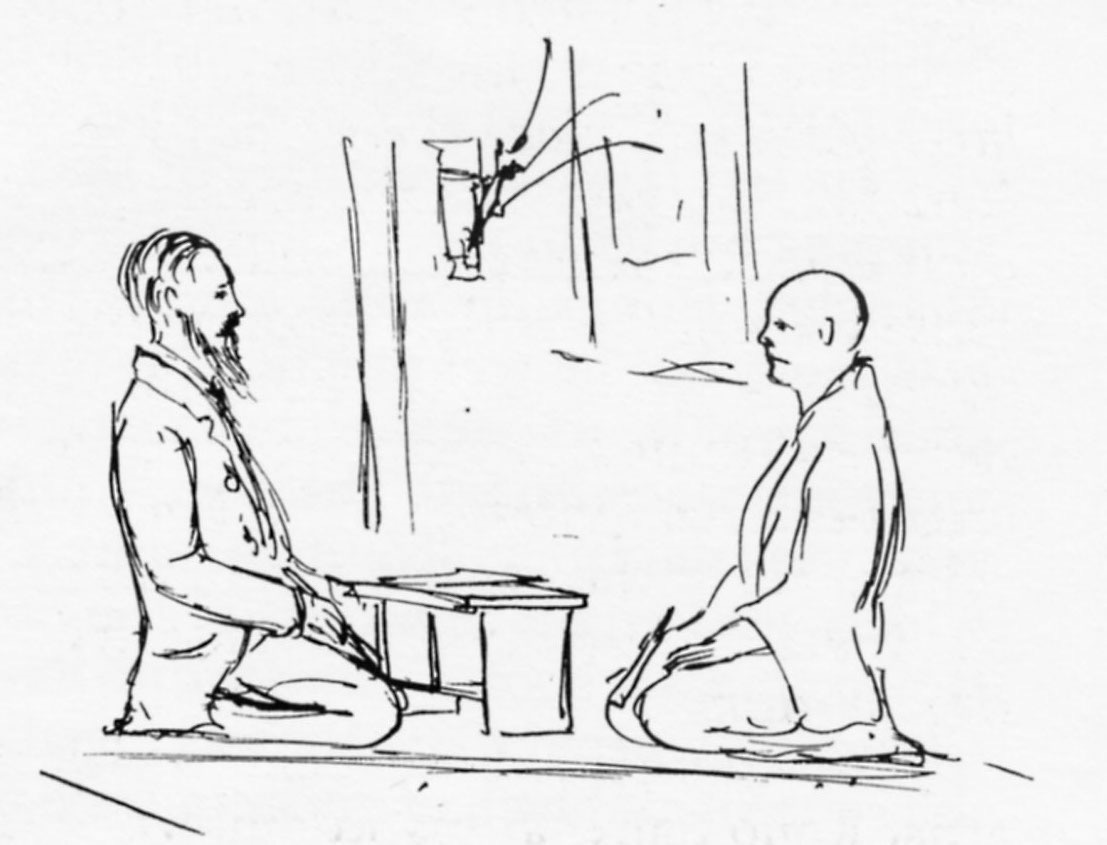
Morse taking lessons in Noh singing from the famous teacher Umewaka Minoru.
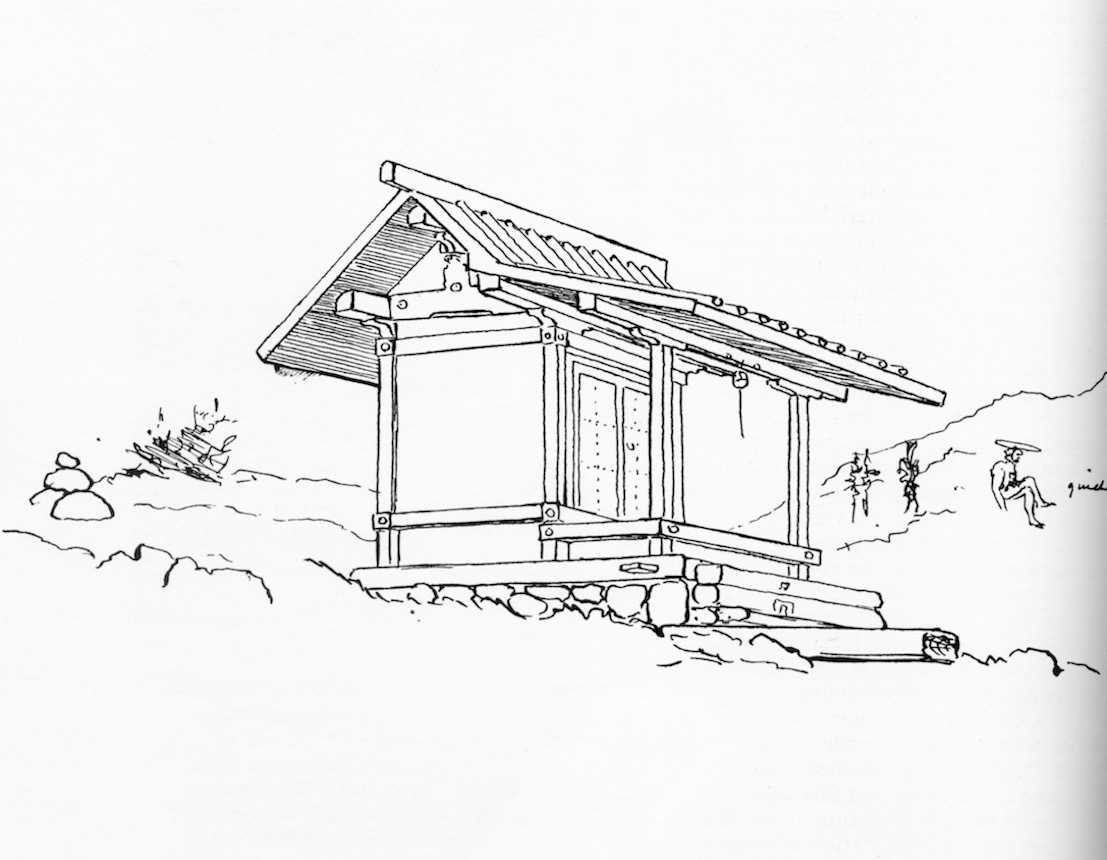
Shrine on a mountain side
The sketches above were done by E.S. Morse during his first stay in Japan, starting in 1877. They were later reproduced in Japan Day by Day by Money Hickman and Peter Fetchko.
After a brief return to the U.S., he returned, bringing his family, to take up the position of head of the new Zoology Department. He took on the added responsibility of creating the first Natural History Museum, which still exists at the University.
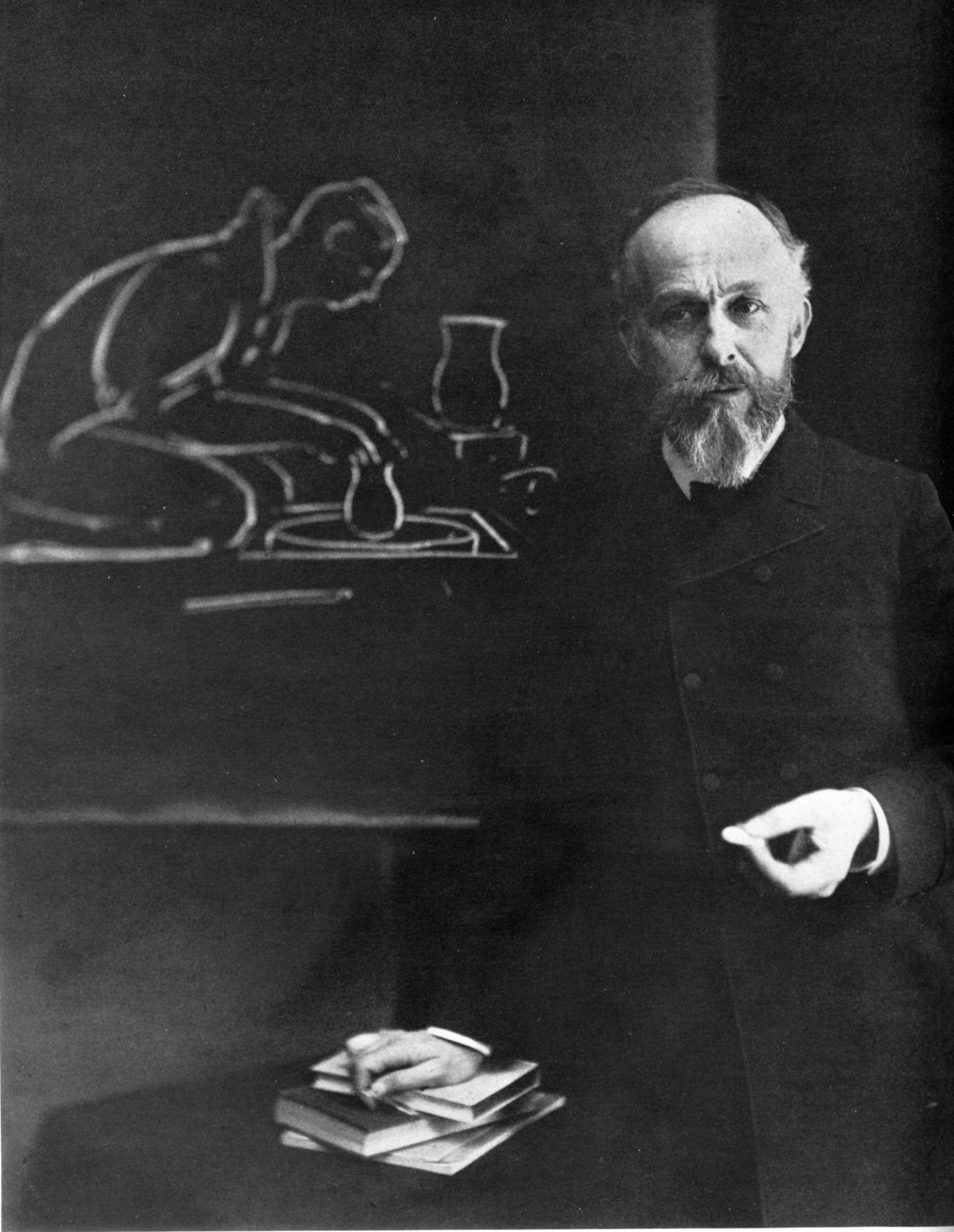
E.S. Morse at the blackboard. From Japan Day by Day, by Money Hickman and Peter Fetchko.
He returned to the United States where he accepted the position of Director of the Peabody Museum where he served for 36 years, and created one of the best collections in this country of Japanese material. Over the course of his lifetime, he published more than 560 articles, pamphlets, and books, and received innumerable awards.
Morse's talents extended to being a brilliant and engaging lecturer. Morse was appreciated, not only for his words, but also for his ability to draw on a chalkboard, with two hands, while he lectured. He continued his rigorous speaking schedule throughout his life.